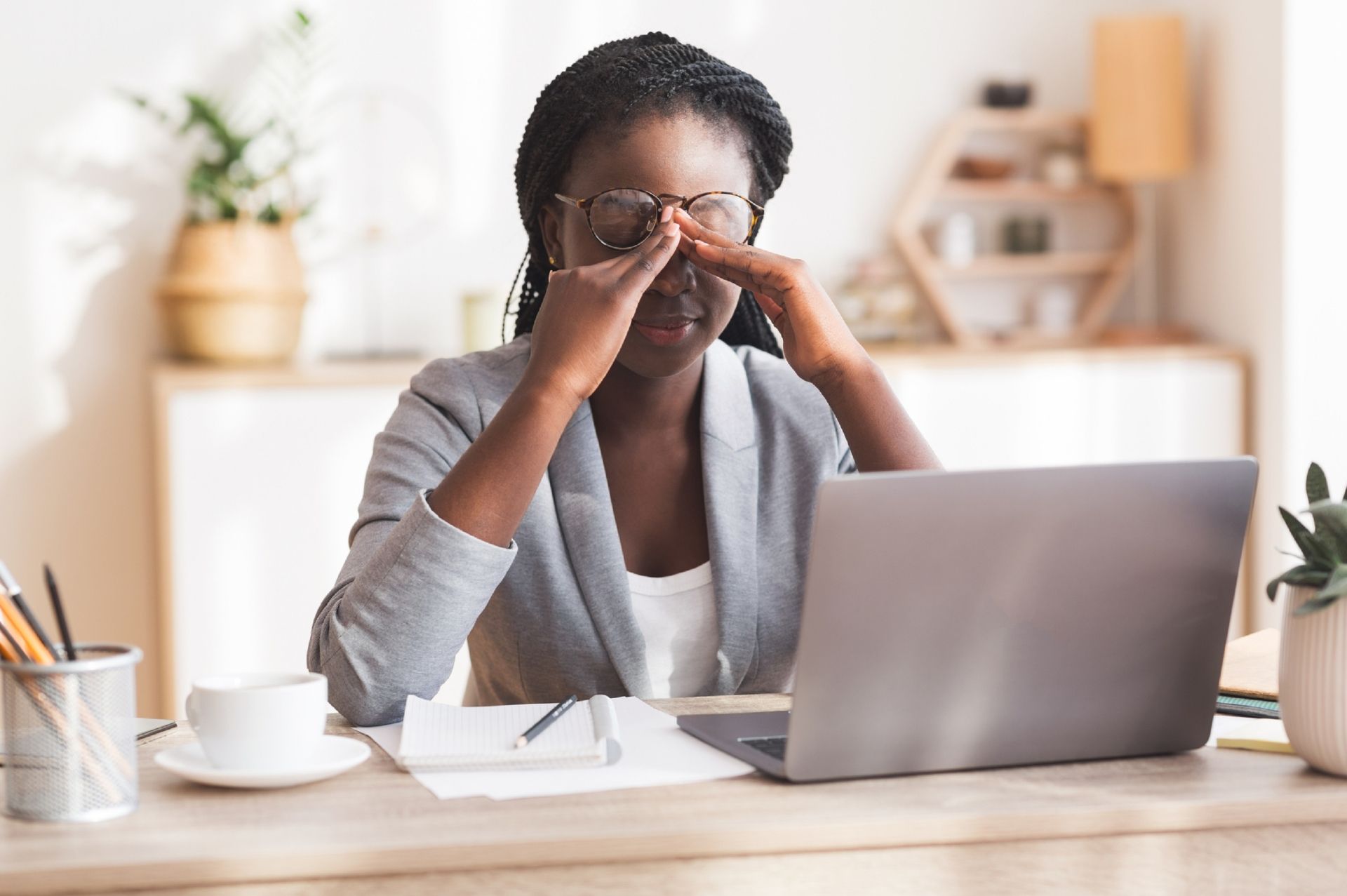Although screens aren't the only cause of visual fatigue and dry eye syndrome, they're increasingly contributing to the ailment, which affects millions of people worldwide. Lockdown conditions haven't helped either, as working from home often goes hand-in-hand with increased screen time. Thankfully, there are some simple ways to help prevent the problem.
Have you ever noticed your eyes feeling dry? While this symptom alone doesn't necessarily mean you're suffering from dry eye syndrome, it indicates a certain visual fatigue, and generally also a deficit in tear production. If this dry feeling is accompanied by tingling, itching or discomfort in the eyes, or your eyelids are sticking together -- especially on waking -- then you're almost certainly suffering from dry eye.
Dry eye occurs when the quantity and/or quality of tears produced is insufficient to lubricate and nourish the eye. Several causes can contribute to the condition, such as air conditioning, pollution, wearing contact lenses and aging.
However, the ailment is also no doubt becoming more frequent due to the increase in time spent looking at screens, especially with the onset and subsequent boom of social media and streaming sites like Netflix. The University of Iowa Health Care recently stated that looking at screens (computers, tablets, TVs, smartphones) can decrease our overall blink rate by 33 percent, increasing the risk of dryness.
Read more: 4 Relaxing Music Videos To Listen To As You Work From Home
Take A Break, Check The Humidity
A few simple things can help prevent -- or at least limit -- the risk of getting dry eye. Cutting down on screen time would be the ideal solution but, as many countries head back into lockdown, it may be more realistic to adopt some good habits that won't stop you from working or studying from home.
First, a good work setup is essential. This ideally involves placing your computer screen at least 70 cm from your face and, if possible, below eye level so that you don't need to keep your eyes wide open constantly. Next, take a break every 20 minutes to look at something else and blink your eyes a few times. That's also a good idea when you're reading for long periods of time. It may seem obvious, but few of us actually put that into practice to give our eyes a break.
Screens aside, you should air your home regularly and maintain good humidity levels. Try to avoid all types of drafts and air flow, whether from a hair dryer or air conditioning. Steer clear of cigarette smoke too.
Rubbing your eyes or eyelids should be avoided, particularly during a pandemic, since many scientists consider this a potential source of contamination. Artificial tears or eye drops can offer relief from dry eye. However, medical advice should be sought if the condition persists.
Read more: 10 Under Eye Creams & Products That Actually Work
